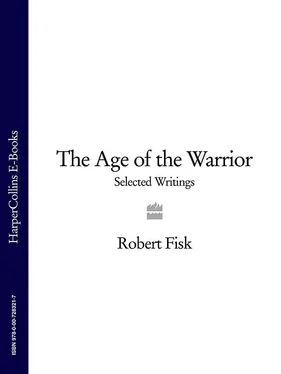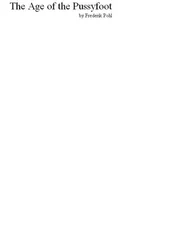Forthwith a power of English shall we levy, Whose arms were moulded in their mothers’ womb To chase these pagans in those holy fields Over whose acres walked those blessed feet.
*USA Today 3 November 2006.
Rhetoric is no one’s prerogative – compare King Henry V’s pre-Agincourt speech with Saddam’s prelude to the ‘Mother of All Battles’ where Prospero-like purity is espoused for the Arab ‘side’. This is Saddam: ‘Standing at one side of this confrontation are peoples and sincere leaders and rulers, and on the other are those who stole the rights of God and the tyrants who were renounced by God after they renounced all that was right, honourable, decent and solemn and strayed from the path of God until… they became obsessed by the devil from head to toe.’
Similar sentiments are espoused by Tamburlaine in Marlowe’s play. Tamburlaine is the archetypal Muslim conqueror, the ‘scourge of God’ who found it passing brave to be a king, and ride in triumph through Persepolis.
But Othello remains the most obvious, tragic narrative of our Middle Eastern fears. He is a Muslim in the service of Venice – close neighbour to the Ottoman empire – and is sent to Cyprus to battle the Turkish fleet. He is a mercenary whose self-hatred contaminates the play and eventually leads to his own death. Racially abused by both Iago and Roderigo, he lives in a world where there are men whose heads supposedly grow beneath their shoulders, where he is black – most Arabs are not black, although Olivier faithfully followed this notion – and where, just before killing himself, he compares his terrible stabbing of Desdemona to the work of a ‘base Indian’ who:
… threw a pearl away
Richer than all his tribe; of one whose subdu’d eyes, … Drops tears as fast as the Arabian trees … Set you down this:And say besides that in Aleppo once, Where a malignant and a turban’d Turk Beat a Venetian and traduc’d the state, I took by the throat the circumcised dog, And smote him thus.
That, I fear, is the dagger that we now feel in all our hearts.
The Independent Magazine , 30 March 2007
After the Second World War, Palestine was crumbling. Menachem Begin’s Irgun had blown up British headquarters at the King David Hotel in Jerusalem, the British were executing Jewish ‘terrorists’, and the Jews had hanged two kidnapped British army sergeants. The Arabs were determined to destroy the future Jewish state of Israel. The old imperial mandate was in a state of incipient civil war. You have only to open Colonial Office file 537/2643 to understand why, in their moment of agony, the British toyed with the idea of negotiating with an Arab cleric whom they had, only two years earlier, tried to extradite as a war criminal.
Indeed, in 1941 Haj Amin al-Husseini, the Grand Mufti of Jerusalem, had been chatting to Hitler in Berlin, urging the Reich to prevent the departure of European Jews to Palestine; and two years later he had been helping to raise a Muslim SS battalion in Sarajevo to fight on the Russian front. Later on, in 1944 claiming ignorance of the Jewish Holocaust, he told the German foreign minister Ribbentrop that if Jews were to be ‘removed’ from Germany, ‘it would be infinitely preferable to send them to other countries where they would find themselves under active control [ sic ], as for example, Poland…’
When he attempted to flee Germany in 1945, the French captured the Grand Mufti, but allowed him to escape to Egypt. In 1947 he turned up in Lebanon as leader of the Palestinian Arabs, a powerful and influential voice that could pacify – or provoke – an Arab uprising against Britain in its last days of rule in Palestine. No wonder, then, that the old Colonial Office file was not released under the usual thirty-year rule, but kept secret for half a century. Its contents – astonishingly, they were overlooked by historians on their release last month – speak not only of hidden contacts between the Grand Mufti and British diplomats in Cairo, but also of imperial despair in Palestine and, most dramatically, of outrage at Jewish ‘reprisals’ against Arab civilians which constituted, according to the British High Commissioner, ‘an offence to civilisation’. Indignation and fury permeate the file. So does defeat.
On 15 December 1947, Lieutenant General Sir Alan Cunningham sent a top-secret memorandum to the British colonial secretary Arthur Creech Jones, outlining the civil war in Palestine in fearful detail. ‘Situation now is deteriorating,’ he wrote,
into a series of reprisals and counter-reprisals between Jews and Arabs, in which many innocent lives are being lost, the tempo of which may accelerate… I have been considering what steps could be taken to mitigate this dangerous situation. As far as the Arabs are concerned it is undoubtedly a fact that word from the Mufti in the right quarter is probably now the only chance of inducing them to hold their hand until we have gone.
Haj Amin had arrived in newly independent Lebanon in early October 1947, and the British Legation in Beirut immediately set out to discover how much freedom he would be given. The Grand Mufti’s sudden appearance, the legation noted, had not surprised the Lebanese prime minister, Riad Solh, *but the Lebanese insisted that ‘a member of the Sû reté’ was in constant attendance on Haj Amin, that his activities would be ‘controlled and restricted’ by the Lebanese and that he ‘would not be allowed to indulge in any activities directed against British interests’. As our diplomats in Beirut were well aware, however, the British Middle East Office in Cairo had already made contact with the man whom Britain and the Allied Forces Command in Europe regarded as a war criminal.
*Lebanon’s first post-independence prime minister. He was assassinated in 1951.
On 29 September, our man in Cairo had sent a secret note to the Foreign Office enclosing the report of an interview with the Mufti from ‘an unimpeachable source’. The carefully typed notes – presumably from a British intelligence officer – portray a man who realised that disaster faced the Arabs of Palestine. The Mufti refused to contemplate the partition of Palestine into Jewish and Arab states. ‘He was not bargaining with the Zionists about a possession in dispute,’ says the report. ‘Palestine, including Jaffa and the Negev, belonged to the Arabs, and he did not recognise the right of anyone to “offer” them what was theirs as a condition of consent to partition. ‘It was like a robber trying to make conditions on which he would return stolen property.’ Besides, Haj Amin said, ‘no form of partition… would finally satisfy the Zionists. Whatever they got would merely be a springboard from which to leap on more.’
The Grand Mufti, who had supported the Arab revolt against British rule in the Thirties and had subsequently sought refuge in Iraq after a pro-German coup, then lectured his interviewee in words that must have taken the Briton’s breath away. ‘Put yourselves in the Arabs’ place,’ Haj Amin advised. ‘Remember yourselves in 1940. Did you ever think of offering the Germans part of Britain on condition that they let you alone in the rest? Of course not, and you never would.’ The answer to partition or a federal Palestine was ‘NO, categorically NO.’ Jews would have the same rights as Arabs in a Palestinian nation ‘but the Arabs would never agree to any bestowal on the Zionists of political power or privilege that put them above… the Palestinian state government’.
There was no reason why Arabs and the British should not cooperate, Haj Amin said. But common interests ‘should not deceive the British into thinking that any Arab leader would weaken where Palestine was concerned… Palestinian Arab enmity towards the British was purely political – they hated the policy that had founded… the Zionist national home.’ If Britain did not support Zionist claims to Palestine, and rejected partition, ‘she would gain Arab friendship in a moment’. But if the British continued their support, ‘they could never hope for Arab co-operation, for the Arabs would then be co-operating in bringing about their own destruction’.
Читать дальше












